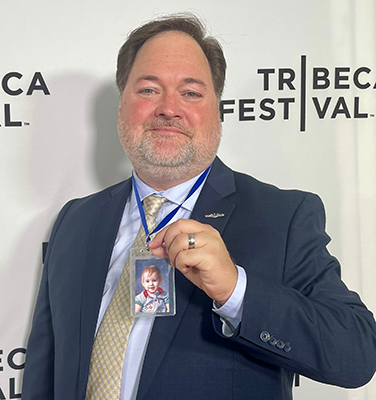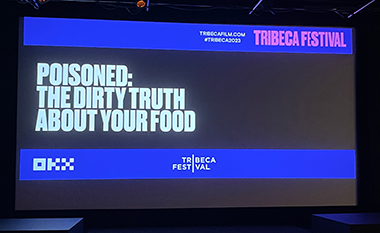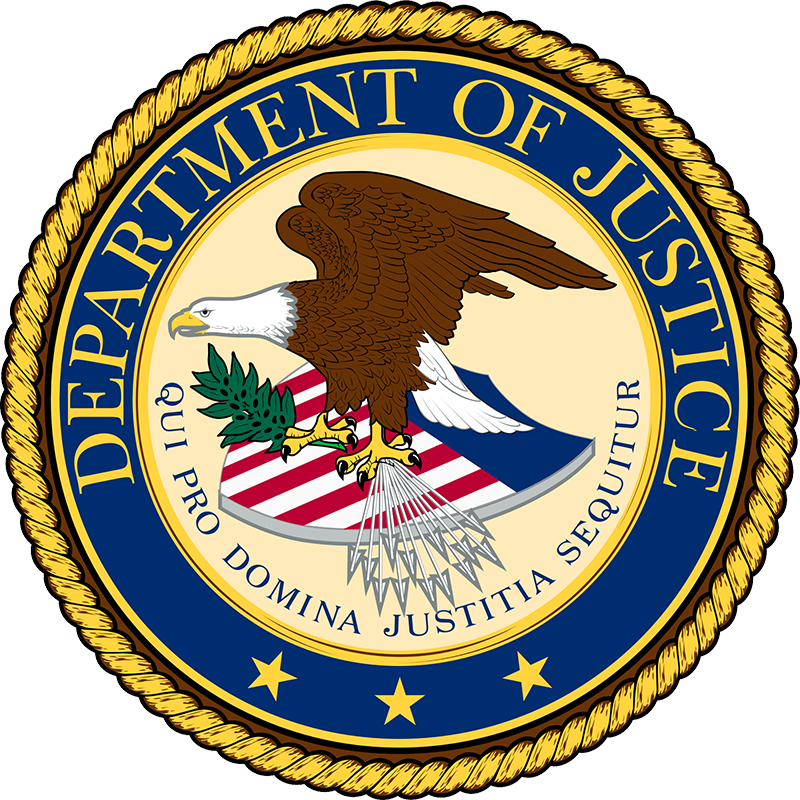Food safety is set to gain national prominence with the release of “Poisoned: The Dirty Truth About Your Food.” The documentary from director Stephanie Soechtig was inspired by the book, Poisoned: The True Story of the Deadly E. Coli Outbreak That Changed the Way Americans Eat, by Jeff Benedict, which tells the story of the landmark 1993 Jack in the Box E. Coli outbreak.
The film premiered on June 9 at the Tribeca film festival and will launch on Netflix in Fall 2023. We spoke with Dr. Darin Detwiler, author, founder and CEO of Detwiler Consulting Group, and professor at Northeastern University, whose son Riley died as a result of the outbreak at just 16 months old, about his involvement in the documentary, who the film aims to reach, and changes that could be implemented to strengthen America’s food safety system.
How did the documentary come together and how did you get involved?

Dr. Detwiler: The film makers bought the rights to the book Poisoned by Jeff Benedict, But where Benedict’s book really looks at 1993 and the immediate aftermath of the Jack-in-the-Box E. coli outbreak, the filmmakers also wanted to look at the 30 years since the outbreak. We connected because I had written Food Safety: Past, Present and Predictions, and in that book I talk about 1993 and the immediate aftermath, but I also talk about the Peanut Corporation of America, the romaine lettuce outbreak and other landmark cases over the past three decades. I was a good resource for them in terms of my experience in 1993 with the death of my son, who was one of those four who died as a result of the E. Coli outbreak, and also in terms of my work with USDA and the FDA and my role as an academic who speaks on food safety and food safety policy.
Who is the intended audience in terms of who the filmmakers were hoping to speak to and in terms of who you hope to reach?
Dr. Detwiler: I love the fact that there are different audiences for the documentary. This is an opportunity for food safety professionals to understand the legacy of the E. Coli outbreak and the why behind the protocols, procedures, and expectations in regulatory compliance.
But what excites me is that this documentary was made for the general public, and it can hit the hearts and the stomachs of everyone. Everyone eats, and for more than 50% of people, their first job is somehow connected to food. Could this help someone who is working on a food production line better understand the history behind food handling and food safety requirements?
At the premiere there were so many questions from the audience and people were saying, “I had no idea you could get it E. coli without even eating a contaminated product. I had no idea this is still an issue.” This documentary could impact the decision making of several different categories of stakeholders who all have a role to play in terms of the bigger picture of food safety.
It must be painful to keep revisiting and telling the story of your son’s death.

Dr. Detwiler: It’s a way from me to pay respect to my son, and this might sound Pollyannaish, but it also helps to memorialize his story and extend the legacy of his life to new audiences.
If my son was alive, he’d be older than I am now—I was 24 in 1993 and Riley would be 31 today. For 30 years I have been sharing his story, and it has served two purposes. One is to help improve food safety at the core level and two is to keep my promise to myself. Right after my son died, I spoke with President Bill Clinton on the phone, and I said, “I feel like I need to help and be a part of this.” My thinking was, whatever I can do in terms of science or technology or laws and policy, we’re going to make it such that families in the future will not be dealing with these problems, but clearly they still are.
There was also a sense of, while I’m faced with losing my son, I don’t want to be faced with this notion that my son lost his father. When I do this work, in my mind it’s like I’m still spending time with him. I’m still there for him. And I do this not only for myself and my son but also for other people who have been affected by foodborne illness. To say “the CDC estimates that 48 million Americans become sick every year, that some 128,000 are hospitalized and 3,000 die every year,” that’s usually the most lip service anyone gives to the idea of foodborne illness. When I tell the story of my son’s illness and other family’s experiences, that puts a face and an emotion to those numbers. My goal is to not only impact those with the ability to change the industry, but also serve those 3,000 families every year—that’s 90,000 families since my son died—that live with that chair forever empty at their family table. I saw this documentary as being very important because the true burden of foodborne illness is represented, and representation is an important part of the healing and recovery from such an event.
I was surprised to learn that back in 1993 E. coli in beef wasn’t a significant concern on the federal level, but was more stringently regulated among a small number of states. Are there food safety risks today where you feel we’re lacking in oversight or regulation?
Dr. Detwiler: There were very few states that were reporting E. coli at that time, but within a year that had quadrupled. Today, we have Pulsenet and Foodnet, which are federal collections of data related to foodborne illness incidents, and we have much better—when you’re looking at multi-state outbreaks—data being collected.
One area that’s of interest is the FDA Food Code in that it is updated regularly, but there are some states that use very old versions of it. When I was doing my doctorate research just a few years ago in 2015-2016, there were some states that were using versions of the Food Code there were over 20 years old, and clearly the science has changed.
On the federal level, there are 15 different federal agencies that play a role in food safety as well as many different state agencies, but you don’t just have 50 states. Within those 50 states you have either the State Department of Agriculture or the State Department of Health overseeing food safety—each of which have two different missions and two different sources of funding. On top of that there are more than 3,000 different jurisdictions for food safety in the U.S. when you start looking at military bases, tribal reservations, universities and colleges, etc. In some places it’s regulated by the state and in others it’s by county or even by city. So there are a lot of moving pieces and a lot of different players, resulting in this patchwork of regulatory agency oversight.
Shortly after the 1993 outbreak, the USDA declared that E. coli was an illegal adulterant in meat, and today we rarely see cases of food safety failure related to E. coli and meat. However, there were no significant changes in FDA policy until FSMA was passed in 2010, and the rules didn’t start to be implemented until 2016.
Imagine if we had a single food safety agency. Imagine if there had been a single agency 30 years ago and if the change in policy hadn’t just impact food regulated by the USDA but instead impacted all foods.
Does this mean you support the potential move to create a single Human Foods program at the federal level?
Dr. Detwiler: I do support it and believe it would solve some of these gaps. When you look at other nations you don’t have the division among the states like we have here. Just the sheer number of agencies at the federal level, economically it doesn’t make sense. Look at what happened after 9/11. Suddenly you have the Department of Homeland Security that says we can cut through some of these problems by creating a federal agency that brings together all the different agencies involved in national security. Imagine if something like that was done in terms of food safety.
There are a lot of factors to consider, and this is a complicated issue. I don’t think this documentary will answer all the questions, but I hope that it will compel consumers to start asking these questions. That is where we can potentially see the greatest change and improvement in food safety.
You mentioned that in the documentary the film makers wanted to focus on the legacy of 1993, what in your words is the legacy of 1993?
Dr. Detwiler: In terms of the positive, it gained the media’s attention. We have a food safety culture and industry today that has radically grown when you look at magazines and websites and conferences and things like that. What I do find unfortunate is that it is focused on industry. Imagine if all the messaging about driver safety was kept within the automobile industry and not actually getting to drivers. This documentary fills a big gap by focusing on the consumer. We also have seen the positive impact of the USDA declaring E. Coli an illegal adulterant in meat.

Some of the things the documentary highlights, however, is the issue of antibiotic resistance and salmonella still being legal in poultry. When you look at some of the things that haven’t changed—for example, we see cattle feed lots that are next to where romaine lettuce is grown, the idea that Hepatitis A could be prevented in the food industry and in restaurants if employees simply got the vaccine to prevent it, and the lack of consequences for food safety failures—there are still areas that are lacking.
Most people don’t realize that with Jack in the Box back in 1993, there were no state or federal charges filed even though the CEO acknowledged—in front of news cameras—that they violated state law on the minimum cooking temperature, resulting in hundreds of illnesses and hospitalizations and the death of four people.
For families who’ve lost a child or their child has been left disabled, these cases have all been settled out of court and out of the public eye. This documentary bypasses all of that and puts this information in a very public package.


















